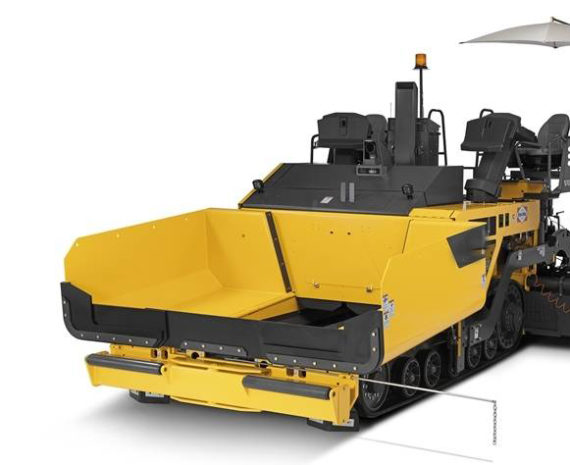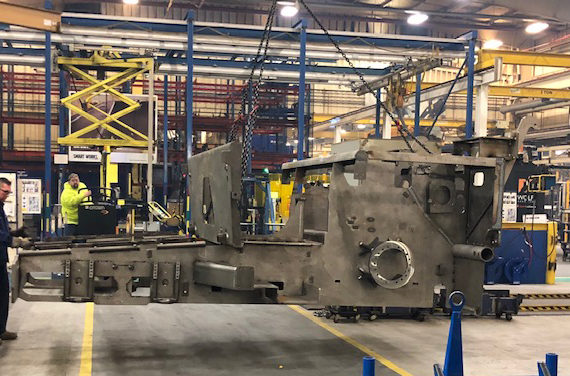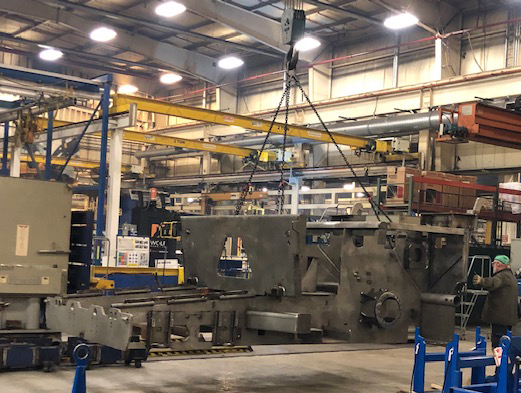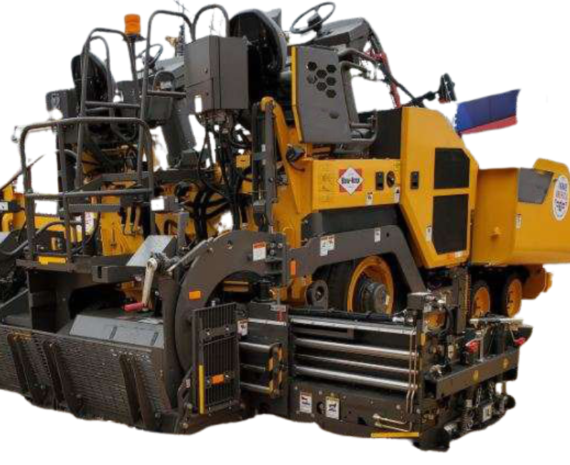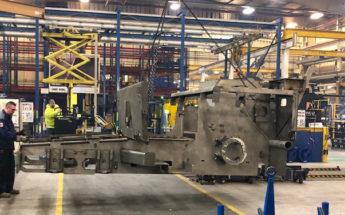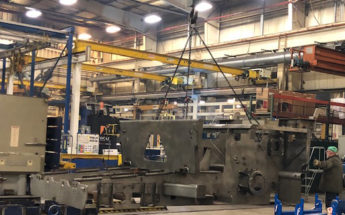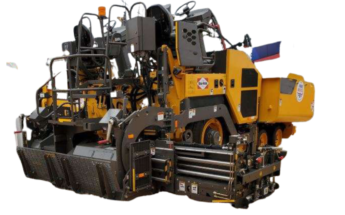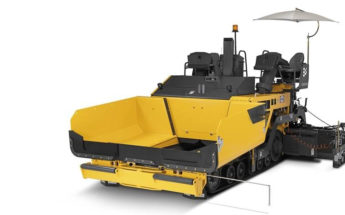Asphalt Paver
A product line gap prompted a global Original Equipment Manufacturer (OEM) within the construction industry to further lean on its long-standing, strategic relationship with Miller Fabrication Solutions. Miller already produced parts for the OEM’s small and large asphalt pavers, but the company wanted to create a mid-sized paver series to fill the void between the two.
The OEM selected Miller to fabricate parts for the new asphalt paver line based on Miller’s knowledge of the company’s existing pavers, familiarity with similar parts on other pavers and track record of on-time delivery, quality and cost competitiveness.
A Model of Partnership
The OEM’s mid-sized pavers include two models – one with tracks and one with wheels. Miller produces the screed kit for the new paver models and, as with the OEM’s other two paver lines, fabricates the mainframe kit, which is composed of numerous detail parts and weldments, including:
- Auger box
- Chain guard
- Conveyor subframe
- Frame rail
- Front bulkhead plate
- Mounting bracket
- Oscillating beam
- Side arm
- Tow arm support
- Wheel paver frame
When the project began, Miller’s engineers created models and worked with its manufacturing team to develop fixturing and machining setups for efficient processing. Production demands involvement from virtually all processes at Miller’s headquarters in Brookville, Pennsylvania.
Precision at a Large-Scale
The pavers’ parts are cut mostly on Miller’s lasers, machined on small vertical machining centers and then welded. Miller saves time by removing the bulk of the material before precision machining.
The pavers’ massive side sheets are machined on Miller’s Amera Seiki VB4, which machines where necessary and adds layout marks to let welders know precisely where to attach component pieces. The side sheets’ substantial size – up to 4.3 mm x 20.1 mm wide x 1.9 mm high – necessitate a dedicated storage area within Miller’s facilities, which comprise a total of 500,000 square feet across three plant locations.
Besides extensive machining, the pavers’ front, center and rear bulkhead plates require tight forming dimensions. To combat this challenge, Miller flattens the bulkhead plates using its state-of-the-art ARKU FlatMaster® 120 machine, sends the plates to the Amera Seiki for machining and then forms the plates on one of its four hydraulic press brakes. The plates then are kitted with their necessary components and welded. After welding, the plates again are sent through Miller’s straightening press to ensure heat from the welding process did not alter the part’s flatness.
Among the most complex parts Miller creates for the asphalt pavers are the front bogie mounts, which hold hydraulic cylinders that support the machine’s weight. Even tiny variances in these mounts will cause binding, as the hydraulic cylinders raise and lower the paver. Miller’s fixtures, which the company designs to ensure the highest quality results, control those variances for accuracy and repeatability.
Benefits of True Vertical Integration
Using its Inventory Control & Management Solution, Miller maintains inventory for the OEM in its kit “supermarket,” minimizing lead times and mitigating process errors that otherwise might result in the need for replacement parts.
Miller ships blasted kit parts ready for welding to the OEM’s facility. Before the initial shipping had begun, a Miller quality inspector, project manager and account representative traveled to the OEM’s plant, where they worked with shop floor welders to identify possible improvements to the frames’ construction and packaging. From this meeting, Miller suggested tolerance changes to reduce processing time, which also reduced costs. For example, Miller now ships the kits on stackable, returnable racks, with the parts placed in the racks to allow for easy access to the OEM’s production line.
Miller also powder coats and ships other parts in returnable packaging. Shipment of these and the blasted kit parts in returnable packaging reduces environmental impact, resulting in zero waste.
Miller and the customer have partnered with a logistics firm that leaves a trailer for Miller to load several times per week. A truck picks up the loaded trailer at day’s end, delivers the fresh parts to the OEM’s plant the next morning and returns the previous delivery’s empty trailer to Miller for reloading. Kits shipped to the OEM generally are welded within a day or two of delivery, so this system allows the OEM to carry very little stock and participate in just-in-time manufacturing, essentially using Miller as an extension of its own warehouse.
To learn how a supplier-partner relationship with Miller can help meet your quality, delivery precision and cost targets, schedule a consultation with a heavy fabrication expert at Miller Fabrication Solutions today.
You Might be Interested in
VA/VE
October 10, 2018
How to Get the Most from Your VA/VE Process